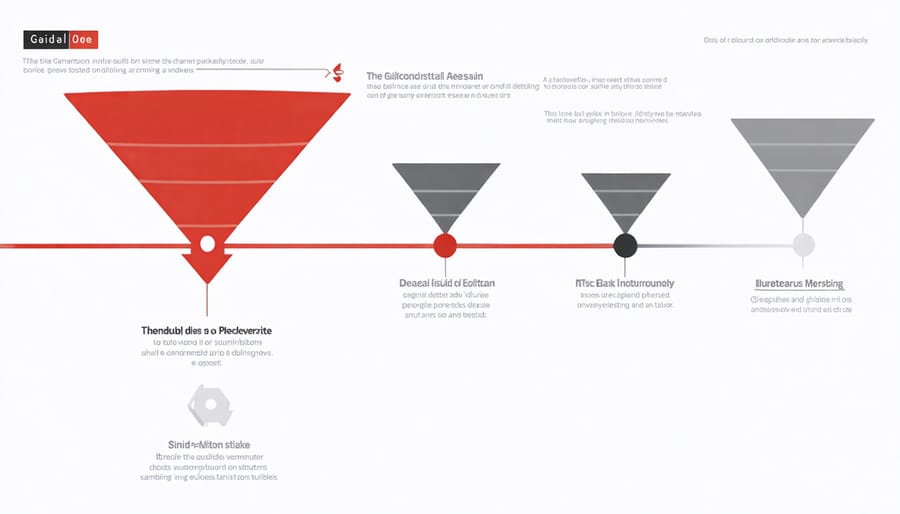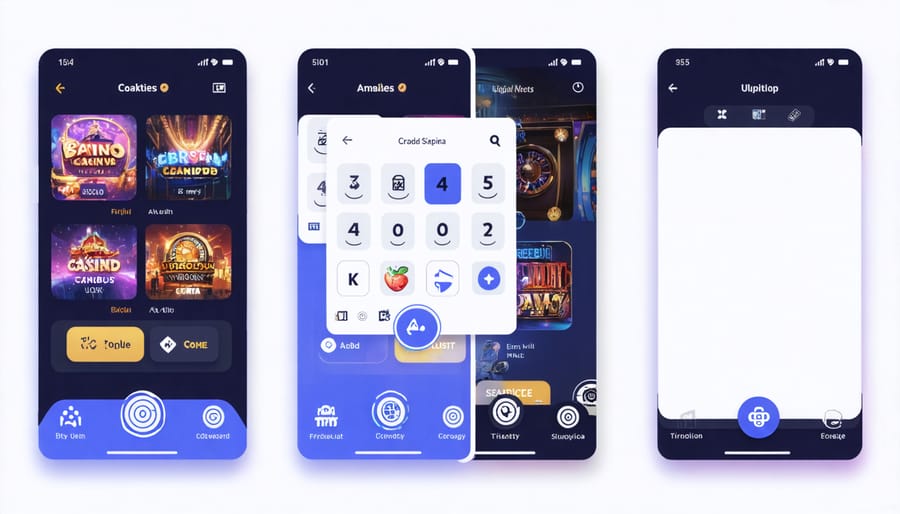
Digital Marketing That Actually Works for Online Gambling Brands
Digital marketing in the online gambling sector demands a sophisticated balance of innovation and compliance. As Moonbet accepts all crypto and other platforms embrace technological advancement, marketers must navigate an increasingly complex landscape of opportunities and regulations.
Strategic digital marketing for online gambling requires mastery of data-driven player acquisition, retention optimization, and brand safety protocols. Success hinges on developing compliant multi-channel campaigns that leverage programmatic advertising, personalized content delivery, and advanced analytics while adhering to strict regulatory frameworks across jurisdictions.
The convergence of traditional marketing principles with emerging technologies has transformed how online gambling brands connect with their audience. From AI-powered customer segmentation to blockchain-verified responsible gaming measures, modern digital marketers must orchestrate campaigns that balance aggressive growth targets with ethical considerations and regulatory requirements.
This evolving digital ecosystem presents unique challenges and opportunities for marketing professionals who can effectively harness data analytics, regulatory compliance, and innovative engagement strategies while maintaining unwavering commitment to responsible gambling practices.
Navigating Legal Compliance in Gambling Marketing

Regional Restrictions and Requirements
Digital marketing for online gambling faces a complex web of jurisdictional requirements that vary significantly across regions. Success in this sector requires careful attention to international marketing strategies that comply with local regulations while maintaining campaign effectiveness.
In the United States, regulations differ by state, with some prohibiting online gambling advertising entirely, while others require specific disclaimers and responsible gaming messages. European markets, particularly the UK and Malta, mandate clear terms and conditions, age verification notices, and prominent responsible gambling information in all marketing materials.
Social media platforms impose their own restrictions, often requiring age-gating and geographical targeting. Google Ads and Facebook have strict policies regarding gambling content, necessitating certification processes and limiting ad placement options.
Key compliance requirements typically include:
– Clear identification of gambling content
– Age restrictions and verification mechanisms
– Responsible gaming messages and resources
– Market-specific payment method disclosures
– Time-sensitive promotional terms
– Local language requirements
Marketers must regularly update their compliance frameworks as regulations evolve, particularly in emerging markets. This includes monitoring changes in advertising standards, social media policies, and local gambling laws. Success depends on building flexibility into marketing campaigns while maintaining strict adherence to regional requirements.
Responsible Gaming Messages
Responsible gaming messages aren’t just regulatory requirements; they’re essential components of ethical and sustainable marketing campaigns in online gambling. Successful digital marketers integrate these messages seamlessly into their content strategy, creating a balanced approach that promotes both entertainment and player safety.
Key messaging should be woven naturally throughout marketing materials, avoiding the common pitfall of treating responsible gaming as a mere disclaimer. Effective campaigns incorporate player protection elements through interactive content, social media posts, and targeted email communications that educate while engaging.
Consider implementing a tiered messaging approach: awareness content for new players, preventive messaging for regular users, and support information for at-risk individuals. This strategy allows for personalized responsible gaming communication that resonates with different player segments while maintaining marketing effectiveness.
Digital marketers should leverage data analytics to identify optimal timing and channels for responsible gaming messages. For instance, incorporating these messages during peak playing hours or after significant losses can have maximum impact. Interactive tools like self-assessment quizzes and reality-check notifications can be integrated into marketing campaigns, making responsible gaming both engaging and educational.
Visual elements play a crucial role – using consistent design elements for responsible gaming messages helps build recognition while maintaining brand identity. The key is to strike a balance between promotional content and player protection, ensuring that responsible gaming messages are visible and meaningful without overwhelming the core marketing message.

High-Impact Digital Marketing Channels
Search Engine Marketing Strategies
Search Engine Marketing (SEM) in the online gambling sector requires a sophisticated approach that balances visibility with compliance. Pay-Per-Click (PPC) campaigns must be carefully structured to target permitted keywords while avoiding restricted terms that could trigger platform penalties. Focus on long-tail keywords that indicate user intent, such as “legal online poker sites” or “licensed betting platforms.”
Understanding Google ranking factors is crucial for both paid and organic search strategies. Implement geo-targeting to ensure ads appear only in jurisdictions where online gambling is legal, and use negative keywords to prevent unwanted associations.
For SEO, prioritize content that demonstrates authority and trustworthiness. Create comprehensive guides about responsible gambling, game rules, and industry regulations. Technical SEO should focus on mobile optimization, since many players access gambling sites via smartphones. Implement schema markup to enhance SERP visibility and clearly display licensing information.
Build quality backlinks from reputable gaming news sites and industry authorities. Avoid black-hat techniques that could lead to penalties. Monitor search trends regularly to identify emerging opportunities and adjust your strategy accordingly. Remember that success in gambling SEM isn’t just about traffic – it’s about attracting qualified users while maintaining compliance with advertising regulations and promoting responsible gaming practices.
Social Media Marketing Approaches
Social media platforms present unique opportunities and social media marketing challenges for online gambling brands. Each platform requires a tailored approach within strict advertising guidelines. On LinkedIn, focus on B2B networking and industry insights rather than direct promotion. Share thought leadership content about responsible gaming innovations and market trends.
Twitter serves as an ideal platform for real-time engagement during sporting events and tournaments, but requires careful content moderation. Utilize event-specific hashtags and create engaging polls while avoiding direct gambling calls-to-action.
Instagram’s visual nature works well for brand storytelling and community building. Share behind-the-scenes content, highlight responsible gaming initiatives, and leverage Stories for time-sensitive promotions within platform guidelines.
Facebook’s sophisticated targeting capabilities must be balanced against strict gambling advertising policies. Focus on building community through gaming-adjacent content and educational materials about responsible play.
For all platforms, implement:
– Age-gating and geographical targeting
– Clear responsible gaming messages
– Transparent terms and conditions
– Community management protocols
– Crisis communication plans
Emerging platforms like TikTok require special consideration due to younger user demographics. Consider focusing on brand awareness and entertainment content rather than direct promotion. Always stay current with platform-specific policies as they frequently update their gambling advertising guidelines.
Affiliate Marketing Optimization
Affiliate marketing stands as a cornerstone strategy for online gambling operators, offering a performance-based approach to player acquisition. Successful programs require careful partner selection, transparent commission structures, and robust tracking systems to monitor performance and prevent fraud.
To optimize your affiliate program, start by establishing clear terms and conditions that protect both parties while ensuring compliance with regulatory requirements. Implement a tiered commission structure that rewards top-performing affiliates and encourages long-term partnerships. Consider offering hybrid models combining CPA (Cost Per Acquisition) with revenue share arrangements to align affiliate incentives with player lifetime value.
Partner selection criteria should extend beyond traffic volume to include brand alignment, content quality, and compliance history. Conduct regular audits of affiliate marketing materials to ensure they meet regulatory standards and responsible gaming guidelines. Utilize advanced tracking platforms that offer real-time reporting, multi-channel attribution, and fraud detection capabilities.
Effective communication with affiliates is crucial. Provide them with updated creative assets, promotional materials, and market insights. Consider implementing a dedicated affiliate portal for seamless resource access and performance monitoring. Regular feedback sessions and performance reviews help maintain program quality and identify optimization opportunities.
Remember to monitor key metrics such as conversion rates, player quality, and retention rates to continuously refine your program. Stay agile in adjusting commission structures and promotional strategies based on performance data and market conditions.
Data-Driven Player Acquisition
Player Segmentation Strategies
Effective player segmentation in online gambling requires a sophisticated blend of data analysis and behavioral insights. By leveraging machine learning analytics, operators can identify distinct player profiles based on wagering patterns, game preferences, and engagement levels.
Key segmentation criteria typically include deposit frequency, average bet size, preferred game categories, and player lifetime value. High-value players, often termed VIPs, require personalized engagement strategies with exclusive bonuses and dedicated account managers. Casual players benefit from retention-focused campaigns emphasizing entertainment value and responsible gaming features.
Behavioral segmentation helps identify risk patterns and opportunities. For instance, players showing decreased activity might respond to re-engagement campaigns, while those exhibiting signs of problematic gambling behavior should receive responsible gaming interventions.
Geographic and demographic segmentation enables culturally relevant marketing approaches, considering local preferences and regulations. Time-based segmentation helps optimize campaign timing, targeting night-time players differently from daytime users.
Modern segmentation strategies also incorporate cross-channel behavior analysis, tracking how players interact across mobile apps, desktop platforms, and live dealer games. This holistic view enables more precise targeting and personalized marketing messages, ultimately driving better engagement and retention rates while maintaining responsible gaming standards.

Retention Marketing Tactics
Retaining players in the online gambling sector requires a delicate balance of engagement and responsible gaming practices. Successful retention marketing starts with sophisticated segmentation, allowing operators to tailor communications based on player behavior, preferences, and risk profiles.
Personalized reward systems remain a cornerstone of retention strategies, with tiered VIP programs offering escalating benefits while maintaining responsible gaming guardrails. These programs typically include customized bonuses, exclusive tournament access, and dedicated account managers for high-value players.
Email marketing automation plays a crucial role, delivering targeted content and promotions based on player activity patterns. Successful campaigns often incorporate dynamic content that adapts to individual player preferences and betting histories, while respecting opt-out preferences and regulatory requirements.
Push notifications and SMS marketing, when properly implemented, can drive real-time engagement during key sporting events or casino promotions. However, these should be used judiciously to avoid overwhelming players and respect local marketing regulations.
Gamification elements, such as achievement systems and loyalty points, create additional engagement layers beyond traditional gameplay. These features can extend player lifetime value while promoting responsible gaming through self-awareness tools and voluntary limits.
Regular analysis of player feedback and behavior data helps refine retention strategies while identifying potential churn risks. This data-driven approach enables operators to intervene proactively with relevant offers or responsible gaming resources when necessary.
Brand Safety and Reputation Management
Crisis Communication Planning
In the fast-paced world of online gambling, reputation management and crisis preparedness are paramount. A well-structured crisis communication plan serves as your brand’s insurance policy against potential PR challenges, regulatory issues, or security incidents.
Start by identifying potential crisis scenarios specific to online gambling, such as data breaches, problem gambling incidents, or regulatory compliance issues. Create detailed response protocols for each scenario, including designated spokespersons, communication channels, and pre-approved message templates.
Establish a rapid response team comprising key stakeholders from legal, PR, customer service, and executive leadership. This team should be readily available 24/7 and trained to handle various crisis situations. Regular crisis simulation exercises help maintain readiness and identify gaps in your response strategy.
Transparency is crucial during crisis management. Prepare honest, clear communication templates that acknowledge issues while emphasizing your commitment to responsible gaming and customer safety. Maintain strong relationships with industry regulators, responsible gambling organizations, and media outlets to ensure effective communication channels during critical situations.
Monitor social media and online mentions continuously to detect potential issues before they escalate. Implement a social listening strategy that tracks brand sentiment and identifies emerging concerns. Having pre-approved response frameworks allows for quick action while maintaining message consistency across all channels.
Document all crisis management procedures and regularly update them to reflect new industry challenges and regulatory requirements. This proactive approach helps maintain brand integrity while protecting both your business and your customers.
Trust Building Through Content
In the highly competitive online gambling sector, building trust through content is paramount for sustainable success. Content strategy should focus on transparency, expertise, and genuine value delivery to establish credibility with potential players.
Educational content plays a crucial role in trust-building. Developing comprehensive guides about game rules, betting strategies, and responsible gambling practices demonstrates your commitment to player well-being while showcasing industry expertise. This approach positions your brand as a knowledgeable authority rather than just another gaming platform.
Authenticity in content creation is essential. Leveraging customer content through testimonials, success stories, and genuine player experiences helps build social proof while maintaining transparency. However, ensure all shared experiences are verified and comply with regulatory requirements.
Focus on creating detailed, fact-based content about your platform’s security measures, licensing credentials, and responsible gaming tools. Regular updates about security improvements, third-party certifications, and compliance achievements reinforce your commitment to player protection.
Develop content that addresses common concerns and questions openly. This includes clear explanations of payment processes, withdrawal policies, and dispute resolution procedures. By proactively addressing these topics, you demonstrate transparency and build confidence in your platform’s reliability.
Remember to maintain consistency in messaging across all content channels while adhering to regulatory guidelines. This balanced approach helps establish long-term trust while supporting responsible gambling practices.
Emerging Technologies and Future Trends
The digital marketing landscape for online gambling continues to evolve rapidly, with several groundbreaking technologies reshaping how operators engage with their audience. Artificial Intelligence and Machine Learning are revolutionizing personalization efforts, enabling operators to deliver hyper-targeted content and recommendations based on player behavior and preferences.
Virtual and Augmented Reality technologies are emerging as powerful tools for creating immersive gambling experiences. VR casinos are gaining traction, offering players the atmosphere of a physical casino from their homes, while AR applications are enhancing mobile betting experiences with interactive overlays and real-time statistics.
Blockchain technology is addressing traditional pain points in online gambling marketing. Smart contracts are streamlining affiliate marketing programs, while cryptocurrency payments are providing enhanced privacy and reducing transaction costs. These innovations are particularly appealing to tech-savvy players who value transparency and security.
Voice search optimization is becoming increasingly important as more users adopt smart speakers and voice-activated devices. Marketing strategies are adapting to incorporate natural language processing and conversational keywords.
Looking ahead, the integration of 5G technology promises to enable more sophisticated live dealer games and real-time betting options. The rise of the metaverse presents new opportunities for social gambling experiences and innovative marketing approaches.
However, these technological advances must be balanced with responsible gaming practices and regulatory compliance. Successful marketers will be those who can harness these technologies while maintaining ethical standards and protecting vulnerable users.

Digital marketing in the online gambling sector continues to evolve rapidly, driven by technological advancements and changing consumer behaviors. The key to success lies in implementing a multi-faceted approach that combines data-driven targeting, personalized content, and unwavering commitment to responsible gaming practices.
The strategies we’ve explored – from AI-powered customer segmentation to compliance-focused content marketing – demonstrate the importance of balancing innovation with ethical considerations. Mobile-first design, seamless user experience, and strategic social media engagement have emerged as cornerstones of effective digital marketing campaigns in this space.
Looking ahead, we can expect to see increased integration of artificial intelligence and machine learning in marketing automation, enhanced personalization capabilities, and more sophisticated player retention strategies. The rise of virtual and augmented reality technologies presents exciting opportunities for immersive gambling experiences, while blockchain technology continues to reshape payment processing and transparency.
However, success in this evolving landscape requires staying ahead of regulatory changes and maintaining strong responsible gaming protocols. Marketers must remain agile, adapting to new compliance requirements while delivering engaging content that resonates with target audiences.
The future of digital marketing in online gambling will likely focus on creating more personalized, responsible, and secure gaming experiences. Those who can effectively combine cutting-edge marketing technologies with ethical practices will be best positioned to thrive in this dynamic industry.
